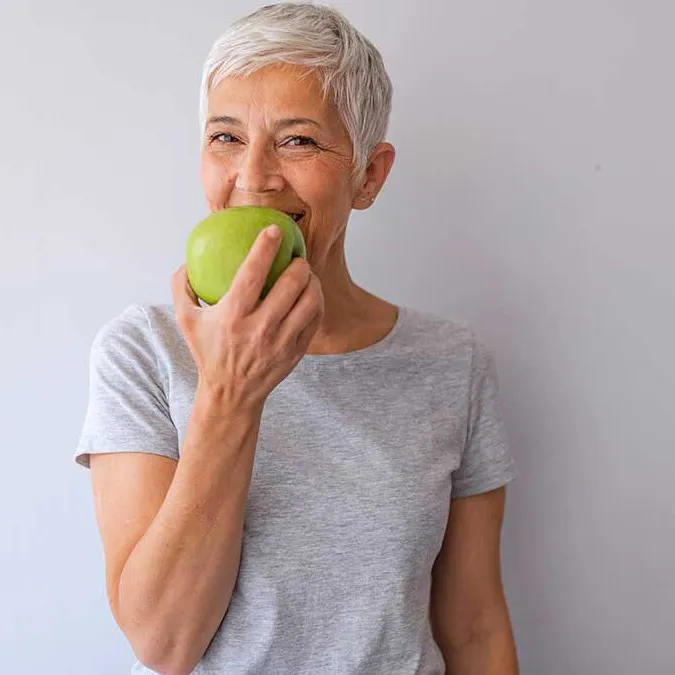
Published on: 26 October, 2020
Read Time: 3 min
Our sixties come with the freedom to look back at our life and consider the things that went well and those that didn’t go so well. Hopefully, health has been one of the bright spots. But if it hasn’t been it’s never too late to start adopting healthy habits. Here are 5 health issues to take care of in your sixties.
1. Sleep is just as important as ever
Studies show that as we age, the body makes and releases less of the sleep hormone melatonin which makes it harder to achieve a deep, restful sleep. Good quality sleep can lower your risk of diabetes, reduce stress, improve your mood and strengthen your immune system. Here are a few things that may help
- Before bed, limit caffeine and nicotine.
- Try to go to sleep and get up at the same time every day to get into a regular pattern.
- Establish a soothing pre-sleep routine.
2. Healthy eating practices
According to the Centers for Disease Control (CDC), adults who eat a healthy diet have a lower risk of obesity, heart disease, type 2 diabetes and certain cancers. Healthy eating does not have to be a chore. Consider following the principles of the Mediterranean diet which emphasize:
- Eating more fruits and veggies. Aim for 7-10 servings a day of fruit and vegetables
- Eating more seafood such as tuna, salmon, trout or mackerel.
- Reduce red meat. Substitute fish, poultry or beans for meat.
- Opt for whole grains. Switch to whole-grain bread, cereal and pasta.
3. Bone health
Aging and inactivity can lead to achy joints and bone fragility. With age comes the natural wearing down of cartilage, loss of muscle mass and weaker muscles. These factors can increase the risk of falls and fractures. All women aged 65 years or older should have a bone mineral density (BMD) test, also referred to as a DEXA scan. This test can provide information on where you are in terms of bone strength. It can also help your provider decide on activities that may benefit you:
- Calcium or vitamin D supplements.
- Weight-bearing exercises (e.g. walking, swimming, yoga)
4. Screenings to attend
Just as you did in your fifties, be sure to continue with your health screenings. Screenings to consider starting or continuing:
- Mammogram – screening for breast cancer.
- Fecal occult blood test – A stool sample that looks for blood in the stool which may represent colorectal cancer.
Furthermore, don’t forget to keep up with your well-woman exams – preventative health exams that try to spot early breast and gynecological issues before they become serious.
5. Bladder and incontinence issues
The muscles supporting the bladder are not as strong and flexible as they once were. Adults over the age of sixty may notice more frequent trips to the washroom at night or have moments where small amounts of urine involuntarily escape when laughing or coughing. If any of these problems are causing discomfort or affecting your quality of life, make an appointment to see your provider. They may suggest possible management options like kegel exercises, medication and bladder training.





